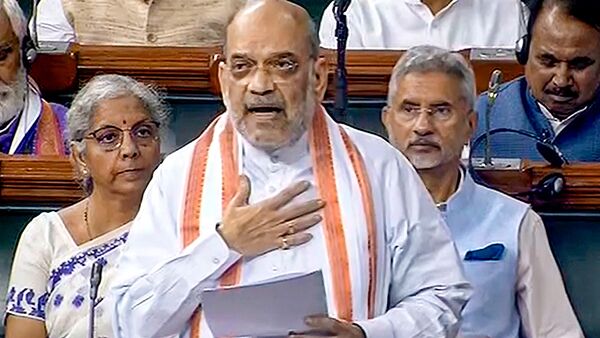On Friday, the government introduced a set of three bills in the Lok Sabha, aimed at replacing the existing laws that serve as the foundation of criminal legal framework in India. The laws in question are the Indian Penal Code of 1860, the Indian Evidence Act of 1872, and the Criminal Procedure Act of 1898. The proposed bill include the Bharatiya Nyaya Sanhita (BNS), the Bharatiya Sakshya (BS), and the Bharatiya Nagarik Suraksha Sanhita (BNSS). These new bills are intended to uphold the colonial-era statutes while ushering in a transformation of the criminal justice system
Table of Contents
Introduction
In a surprising legislative move, the Indian government recently introduced three bills in the Lok Sabha with the potential to reshape the country’s criminal jurisprudence. These bills are poised to replace the longstanding legal pillars that have guided the criminal justice system for over a century: the Indian Penal Code (1860), the Indian Evidence Act (1872), and the Criminal Procedure Act (1898). The proposed legislative trio consists of the Bharatiya Nyaya Sanhita (BNS), the Bharatiya Sakshya (BS), and the Bharatiya Nagarik Suraksha Sanhita (BNSS).
With these groundbreaking measures, the government aims to revolutionize the criminal justice landscape and expedite the delivery of justice, all while staying true to the Prime Minister’s pledge to erase the remnants of British colonial rule.

A Historic Departure from the Colonial Past
Addressing the Lok Sabha, Minister Amit Shah unveiled the significance of the bills, stating that they fulfill one of the five vows announced by the Prime Minister on August 15, 2022. This commitment to dismantling the vestiges of British colonialism has spurred the formulation of the BNS, BS, and BNSS bills.
For over 160 years, India’s criminal justice system operated under laws enacted during the British colonial era. The proposed bills signify a momentous departure from this historical legacy, heralding a new era of criminal justice for the nation.
Reforming Sedition: A Nuanced Approach
One of the key provisions in the BNS Bill has garnered widespread attention: the repeal of sedition. Minister Amit Shah highlighted this crucial change. A closer examination of the bill reveals a nuanced approach to addressing the contentious issue. While the term “sedition” is not explicitly used, the bill introduces Section 150, which focuses on acts that endanger the sovereignty, unity, and integrity of India.
This section encompasses a range of actions, including incitement to secession, armed rebellion, subversive activities, and encouragement of separatist sentiments. The penalties prescribed for these offenses are stringent, encompassing imprisonment for life or up to seven years, along with fines.

Pioneering Reforms and Penalties
The BNS Bill introduces a series of pioneering reforms and penalties that underscore the government’s commitment to a more just and equitable criminal justice system. Notable among these provisions is the introduction of the death penalty for the rape of minors below 18 years of age.
Additionally, the bill addresses the issue of concealing identity during sexual exploitation of women, seeks to curb mob lynching through punitive measures, and mandates a 10-year imprisonment for crimes against children. This comprehensive approach to enhancing the protection of vulnerable populations demonstrates a concerted effort to prioritize their safety and well-being.
Towards Gender-Neutral Justice
Another commendable aspect of the proposed reforms lies in their emphasis on gender-neutral language and provisions. The BNS Bill ensures that offences are addressed in a manner that transcends gender, aligning with the broader goals of inclusivity and equality. By adopting this approach, the bill underscores the significance of equal treatment under the law, regardless of gender.
Community Service: A Progressive Paradigm
Simultaneously, the bill introduces an innovative approach to first-time punishments for minor offences. In a departure from conventional penalties, the BNS Bill proposes community service as an alternative form of reparation. This progressive paradigm shift not only fosters a sense of responsibility within offenders but also contributes to social betterment, echoing global efforts to explore restorative justice models.
Curbing Political Manipulation of Punishment Waivers
The BNSS Bill tackles the issue of political influence over punishment waivers head-on. By stipulating that death sentences can only be commuted to life imprisonment and that such commutations must occur within seven years of the original sentence, the bill seeks to prevent instances of politically influential individuals evading full accountability. This provision addresses concerns raised by recent cases and ensures that those with political clout are not exempt from the rule of law.
Boosting Conviction Rates through Forensic Science
The proposed reforms also place a significant emphasis on leveraging forensic science to enhance conviction rates. Minister Amit Shah expressed the ambitious goal of achieving a 90 percent conviction rate, signaling a commitment to bolstering the effectiveness of the criminal justice system and ensuring a higher degree of accountability.
Conclusion
The introduction of the Bharatiya Nyaya Sanhita (BNS) Bill and its accompanying legislative measures marks a pivotal moment in India’s legal evolution. These bills represent a comprehensive effort to modernize the criminal justice system, ensure fairness and gender neutrality, and expedite the delivery of justice.
By revisiting historical legislation and adapting it to the contemporary context, the government is taking a crucial step towards achieving a more equitable and efficient legal framework.












